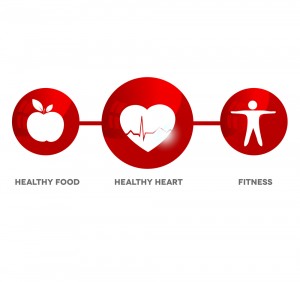Chapter 2 – Burning off calories in place of calorie-restrictive diets
 Always look to burn off calories through exercise before you consider restricting your calorie intake. The most efficient way to reduce your body fat, achieve your fitness aims and optimise your body composition is to burn the fat as opposed to starving the fat.
Always look to burn off calories through exercise before you consider restricting your calorie intake. The most efficient way to reduce your body fat, achieve your fitness aims and optimise your body composition is to burn the fat as opposed to starving the fat.
When your aim is fat loss, exercise is far superior to a calorie-restrictive diet. Exercise is the most potent weapon you have when it comes to creating the small calorie deficit required to achieve your ideal body composition without incurring any of the counter-productive side effects which often come with low calorie diets.
As outlined in chapter 1, when weight loss is your goal it’s extremely important to ensure that you keep to a relatively small calorie deficit in your diet. Too large a deficit will invoke the body’s automatic starvation response, thus slowing down your basal metabolism and causing your body to revert to a catabolic state. In this state, the chemistry of your body’s cells switch to a negative nitrogen balance – a state in which the body tries to retain its fat reserves and energy supplies as much as possible. It follows then that low calorie diets make it extremely difficult for you to burn off future calorie intakes or to shift fat reserves long term.
Another side effect of large calorie deficits in your diet and the resulting negative nitrogen balance or catabolic state which these diets invoke, is a process called gluconeogenesis. When gluconeogenesis sets in, the body seeks to convert healthy lean tissue to energy instead of taking its energy from fat stores. This is because when you try to starve off your excess fat, you also starve your muscles of the energy they need. This catabolic state can be warded off by ensuring you maintain a small calorie deficit in your diet when on a weight loss program. It can also be warded off through more frequent, albeit proportionally smaller, meals every 3-4 hours and regular exercise. However, I will be discussing meal frequency, meal size and exercise strategies in more detail in later chapters.
To summarise, if your objective is weight loss, you should try to maintain a small calorie deficit whilst eating healthily and taking regular exercise. Your calorie deficit should be calculated to yield a weight loss of no more than 1-2lbs per week, thereby ensuring the weight you lose is unhealthy fat weight only. If, on the other hand, your objective is weight gain, you should look to limit your intake to a small calorie surplus with healthy eating and regular exercise, which will ensure a weight gain of no more than 1lb per week whilst also ensuring that the weight you gain is mostly healthy lean weight.
Inspirational quote: It does not matter how slowly you go so long as you do not stop….. Confucius
